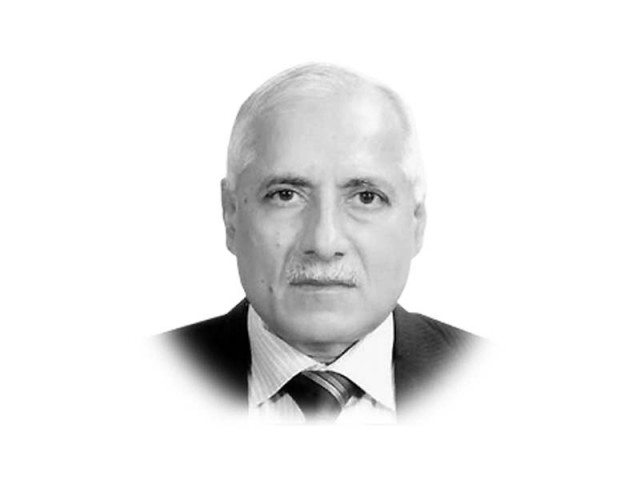Ensuring people-friendly policing
The police act should contain provisions for ensuring that Rangers are not deployed for police functions.

The writer is a former inspector general of the Punjab Police and author of Pakistan: The Political Economy of Lawlessness (Oxford University Press, 2002)
The recent examples of rebuke from the establishment and attempts by the rich and influential to claim immunity from the law are not only demoralising for members of a disciplined force, but also indicate the need for a change in the political culture of marginalising the police from the community. The insensitive remarks about the Khyber-Pakhtunkhwa police by the K-P chief minister brushed aside the supreme sacrifices of the police and their constant struggle against ruthless militants.
The Quetta incident — relating to an argument followed by a scuffle between police personnel and private guards of senior minister Sardar Sanaullah Zehri, in which the latter tried to force their entry into the premises of the assembly, prompting the Balochistan chief minister to announce the suspension of the Quetta superintendent of police — had resulted in a protest by police personnel outside the assembly building. The resolution of the problem by the Balochistan High Court was through suo motu action resulting in a criminal case against the minister’s guards. Following the incident, the advocate general said that the fact that no suspension orders were issued reflects that no change in police culture is possible without a corresponding change in political culture.
The way the Police Order of 2002 was replaced by the colonial Police Act of 1861 in Sindh and Balochistan for ‘political expediency’ shows unwillingness on the part of the provincial governments to fulfil any protective role or make any attempt to retain the maximum degree of public legitimacy.
After the Eighteenth Amendment, policing has become an exclusive provincial subject. However, this does not mean that there is no need for coordination in legislation relating to policing at the national level. Whatever police law the provinces envisage for themselves, the basic structure and contours should be decided at the national level to ensure harmony, effectiveness and efficiency of the police force in the wake of multifarious challenges of organised crime.
While the Khyber-Pakhtunkhwa government is in the process of formulating rules under the Police Order 2002, the Punjab government is considering a draft called the Punjab Police Act 2013. Clauses of the proposed act relate to reinvigoration of the discipline and greater interaction with the community.
Though these steps are in the right direction, it is appropriate to point out that an open, professional, accountable and dynamic system of policing, commensurate with the requirements of a democratic and progressive society, is not possible without incorporating provisions relating to ‘constabulary independence’, which means complete operational autonomy of the police exclusive of bureaucratic or political intervention. This should be in juxtaposition with the legal provisions for community policing, policing by objectives, an alternative dispute-resolution mechanism, a well thought-out media policy and holding of professional police conferences.
The police act should also contain provisions for ensuring that paramilitary civilian agencies, like Rangers, and the army are not deployed for police functions and are not entrusted with police powers. To implement an effective policing system in Pakistan, the challenges emerging from institutional/organisational resistance from the police and the legacy of an unpopular image will need to be addressed. There must also be a change in the management style from authoritarian/autocratic/impersonal to a flexible/friendly one based on team work. The issues of communities fractured on racial, tribal and sectarian bases, ignorance and lack of education, lack of motivation and resources in the police force, substandard recruitment on political grounds, threats from other government departments and criminal elements in the police ranks will also need to be addressed.
Published in The Express Tribune, August 7th, 2013.
Like Opinion & Editorial on Facebook, follow @ETOpEd on Twitter to receive all updates on all our daily pieces.














COMMENTS
Comments are moderated and generally will be posted if they are on-topic and not abusive.
For more information, please see our Comments FAQ